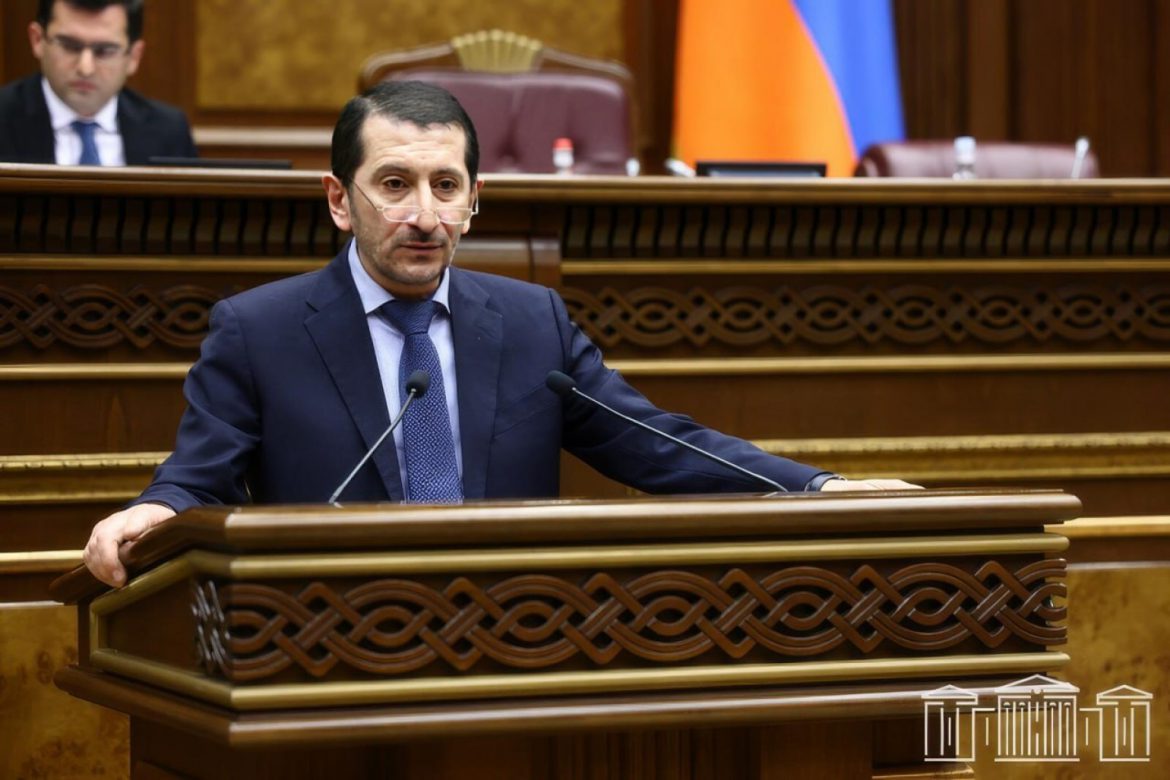The nomination of Aleksandr Sirunyan, a lawyer with close ties to Armenia’s ruling Civil Contract party, for a seat in the Supreme Judicial Council (SJC) has ended in disgrace, underscoring what critics describe as the government’s disregard for judicial independence and ethical standards. Sirunyan, notorious for his inflammatory social media posts targeting critics of Prime Minister Nikol Pashinyan and refugees from Artsakh, withdrew his candidacy on Wednesday after facing a torrent of opposition from lawmakers and civil society groups.
The SJC, ostensibly tasked with safeguarding Armenian courts from political interference, has faced mounting accusations of being a tool for the ruling party’s agenda. Sirunyan’s nomination, characterized by critics as deeply inappropriate, highlighted these concerns. Despite his political affiliations and documented history of hateful and vulgar language on social media, the ruling party pressed forward with his candidacy, seemingly dismissing public outrage as inconsequential.
For years, Sirunyan used his Facebook account—laden with photos of Pashinyan—to hurl profanities at opposition figures and others critical of the government. In one particularly reprehensible post, made before Azerbaijan’s September 2023 military offensive in Artsakh, Sirunyan suggested isolating Artsakh Armenians evacuated to Armenia in a remote region “until you figure out which country will take them in.” Such statements, dripping with contempt for displaced Armenians, drew sharp rebukes during Monday’s parliamentary debate.
Opposition lawmaker Agnesa Khamoyan minced no words, calling Sirunyan’s mere presence in parliament “a disgrace.” Fellow opposition deputy Artur Khachatryan ridiculed Sirunyan’s evasive explanation that his account was a “collective page” used by unnamed individuals, further undermining the credibility of his defense.
The controversy reached beyond the opposition benches, with over a dozen civil society groups condemning Sirunyan’s nomination. These organizations decried his conduct as “incompatible with the principles of integrity” and accused him of promoting hatred against the people of Artsakh. Such condemnation underscores broader concerns about the government’s approach to governance and accountability.
Even as Civil Contract deputies tried to defend the nomination, cracks within the ruling party’s ranks became evident. Parliament speaker Alen Simonyan hinted on Tuesday that Sirunyan’s appointment might not proceed, signaling a rare acknowledgment of public and institutional backlash.
Hours before the scheduled vote, Sirunyan abruptly announced his “voluntary” withdrawal, citing legal questions raised during the parliamentary debate about his business dealings. Few found this explanation convincing. Opposition members, including Khamoyan, dismissed his reasoning outright, asserting that Pashinyan had ordered him to step aside to mitigate political damage.
This debacle is far from an isolated incident. The SJC itself has been criticized as a puppet of the Pashinyan administration. Under Karen Andreasyan, a former Civil Contract member who headed the council from 2022 to 2024, dozens of judges perceived as obstacles to government policy were dismissed. Andreasyan’s forced resignation last November, at Pashinyan’s request, further fueled claims that the judicial oversight body is merely an instrument for consolidating power.
Sirunyan’s withdrawal may avert immediate controversy, but it serves as a stark reminder of the government’s growing tendency to prioritize loyalty over competence and ethical governance. While the ruling party insists on its commitment to reform, actions like these paint a picture of a leadership more interested in consolidating power than upholding the principles of transparency, accountability, and judicial independence.




